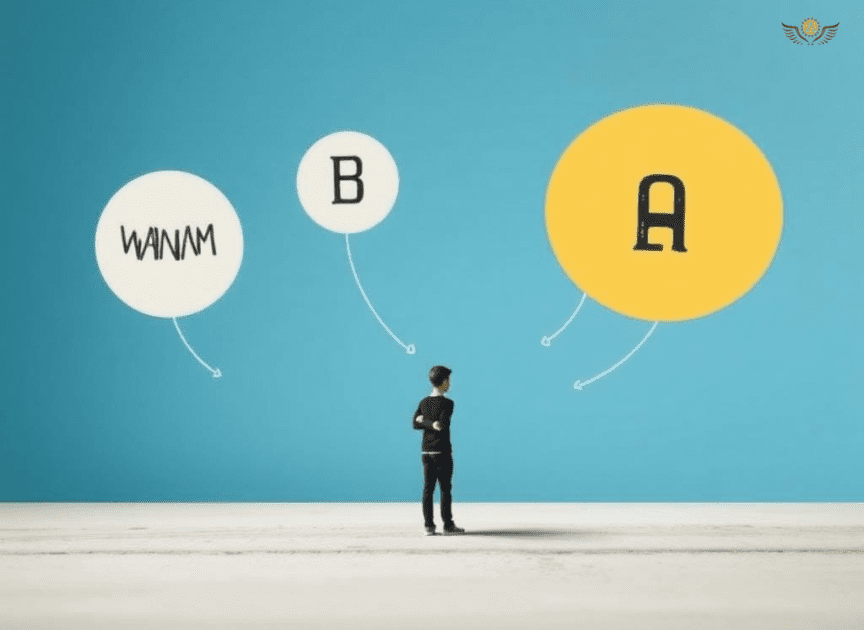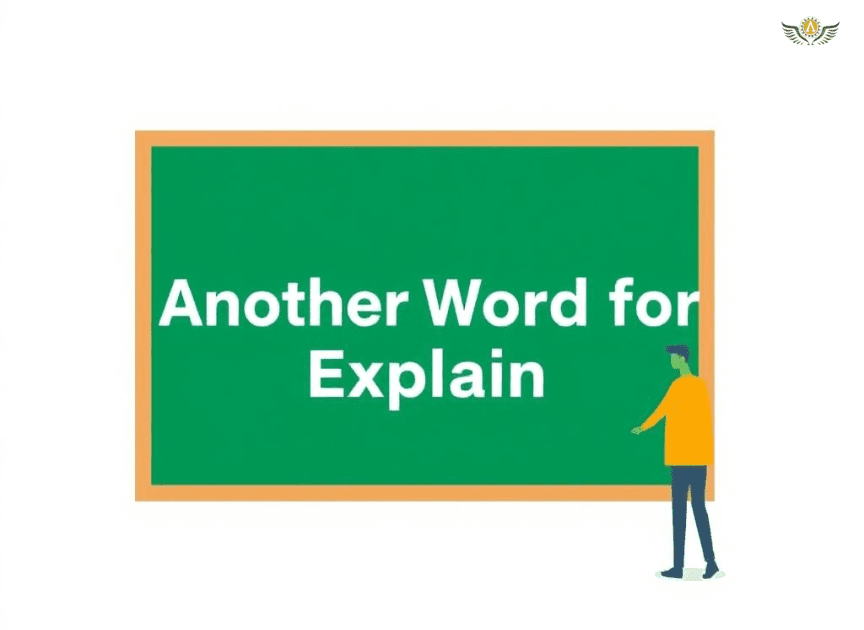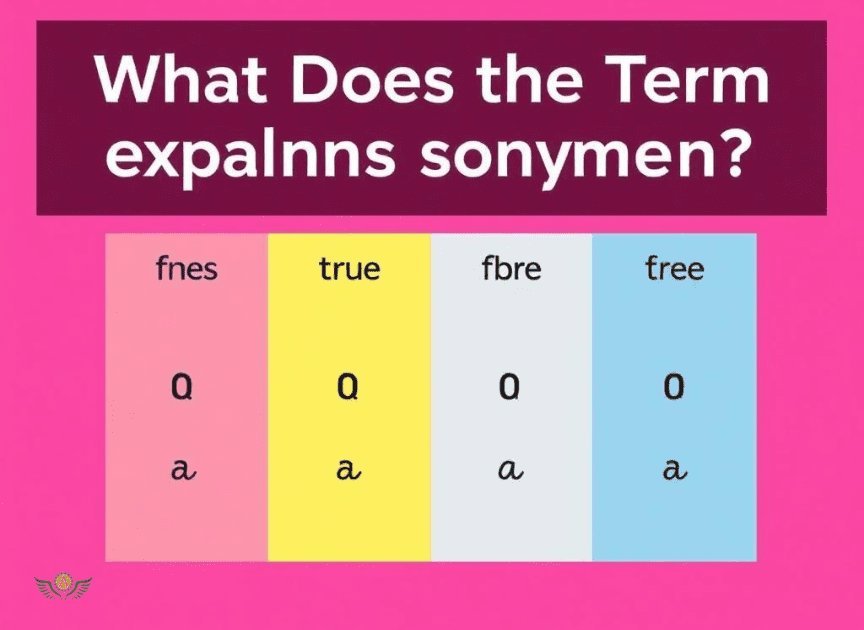Another Word for Explain: Understanding the nuances of language and how words interrelate can elevate your communication skills and writing finesse. This article dives into synonyms for “explain,” their definitions, and practical applications. You’ll learn how to use these words effectively to enhance clarity and creativity in your expressions. Whether you’re writing, speaking, or brainstorming ideas, this guide will enrich your vocabulary and understanding of language.
Why Explaining Matters in Everyday Life
The ability to explain impacts relationships, careers, and even self-expression. It is not just about making others understand but also about connecting ideas in meaningful ways. From teaching children to resolving conflicts, explaining bridges gaps and fosters clarity.
Example Scenarios:
- Teaching: A teacher explains a complex math problem using relatable examples.
- Conflict Resolution: In relationships, clear explanations help avoid misunderstandings.
- Sales and Marketing: A successful pitch often depends on explaining the value of a product effectively.
What Does “Explain” Mean?

“Explain” is a versatile verb that means to make something clear or understandable. It involves clarifying details or concepts, often through demonstrations or examples. Whether you’re elucidating a complex idea or simplifying a process, the act of explaining bridges gaps in understanding and fosters effective communication.
For instance:
- Example Sentence: Can you explain the instructions for assembling this product?
- Synonym Usage: The teacher elucidated the scientific concept to the class.
Synonyms for Explain: Why Do We Need Them?
Using synonyms for “explain” enriches your language and helps avoid repetition. Synonyms like “clarify,” “elucidate,” or “demonstrate” offer nuanced alternatives that align with varying contexts. Here’s why you might use them:
- To make your writing or speech more engaging.
- To tailor your language to a specific audience or situation.
- To add precision and depth to your descriptions.
For example:
- “Can you clarify your point further?”
- “The guide elucidated the history behind the artifact.”
- “She demonstrated how the machine operates.”
62 Synonyms: Expanding Your Vocabulary
Here’s a list of 62 synonyms for “explain,” along with examples:
| Synonym | Example Usage |
|---|---|
| Clarify | “Can you clarify the instructions further?” |
| Elucidate | “The scientist elucidated the phenomenon.” |
| Illuminate | “The explanation illuminated the complex topic.” |
| Simplify | “She simplified the procedure for newcomers.” |
| Expound | “He expounded on the theory in great detail.” |
| Articulate | “She articulated her points clearly and concisely.” |
| Interpret | “The lawyer interpreted the contract terms.” |
| Define | “The teacher defined the key concepts.” |
| Specify | “Please specify what you mean.” |
| Demonstrate | “The chef demonstrated the cooking technique.” |
Example Usage:
- “The professor simplified the theory for beginners.”
- “He articulated his ideas clearly during the meeting.”
When to Use Different Synonyms?
Choosing the right synonym depends on your goal and the audience:
- Use clarify for formal writing.
- Opt for elucidate in academic or technical contexts.
- Select demonstrate when you want to show or illustrate something physically.
The Role of Culture in Shaping Explanations

Different cultures have unique ways of explaining. In some Eastern traditions, metaphors and parables are commonly used, while Western approaches may lean towards analytical clarity.
Cultural Examples:
- Eastern Approach: “A farmer’s tale explained the value of patience.”
- Western Approach: “A step-by-step manual explained the scientific process.”
Antonyms of Explain: Exploring Opposites
Antonyms like “obscure,” “confuse,” or “cloud” indicate the opposite of explaining. These words are useful when describing situations where understanding is hindered.
Example Sentences:
- “The dense text obscured the main idea.”
- “Her vague answers only clouded the issue.”
The Role of Thesauruses in Language Learning

A thesaurus is an indispensable tool for finding synonyms and antonyms. Online resources like the Merriam-Webster Thesaurus or the English Thesaurus provide comprehensive options to enrich your writing.
Benefits of Using a Thesaurus:
- Expands vocabulary.
- Provides contextual examples.
- Offers related words and phrases to explore.
Common Phrases and Idioms Related to “Explain”
Understanding idioms and phrases adds color to your language. For example:
- “Let me spell it out for you.”
- “Break it down step by step.”
- “Put it in layman’s terms.”
Grammar Insights: The Past Tense of Explain
The past tense “explained” is used to describe actions completed in the past:
- Example Sentence: She explained the rules before the game began.
Fun Wordplay: Words That Rhyme with Explain
Exploring rhymes can be fun, especially for poets and lyricists. Words like “refrain,” “pain,” and “domain” rhyme with “explain.”
Creative Example:
- “To refrain from causing pain, you must explain.”
How Technology Is Transforming the Way We Explain

With AI, augmented reality, and virtual tools, the methods of explaining are evolving rapidly. Consider these trends:
- AI Assistants: Tools like ChatGPT simplify explanations by breaking down complex queries.
- Visual Explainers: Infographics and videos are replacing lengthy textual explanations.
- Interactive Platforms: Gamified learning and simulations engage users in a more immersive way.
Explaining Abstract Concepts
Abstract ideas like emotions, philosophies, or theories require creative approaches. Here are some methods:
- Use Analogies: Compare the concept to something familiar.
- Storytelling: Narratives make abstract ideas relatable.
- Visual Aids: Diagrams and visuals simplify complex ideas.
Example:
To explain “empathy,” one could say, “Imagine walking in someone else’s shoes.”
Challenges in Explaining Effectively
Not all explanations succeed. Common challenges include:
- Overcomplicating simple ideas.
- Ignoring the audience’s perspective or background knowledge.
- Using jargon without clarification.
Overcoming These Challenges:
- Adapt to your audience’s level of understanding.
- Use examples that resonate with them.
- Encourage questions and feedback.
Building Explaining Skills: Tips for Improvement

- Practice Empathy: Understand your audience’s needs.
- Stay Curious: The more you know, the better you can explain.
- Simplify: Aim for clarity over complexity.
- Use Feedback: Ask if your explanation made sense.
Summary: Key Takeaways
- “Explain” means to make something clear or understandable.
- Synonyms like “clarify,” “elucidate,” and “demonstrate” enrich language.
- Antonyms such as “obscure” or “cloud” offer contrasting meanings.
- Different cultures and technologies shape the way we explain.
- Overcoming challenges in explanation involves empathy, clarity, and feedback.
Explaining goes beyond words; it’s a skill that connects, enlightens, and empowers. By honing your ability to explain effectively, you unlock doors to better communication, stronger relationships, and greater understanding in all areas of life.
Conclusion: Key Takeaways
Explaining is more than just providing information—it’s about creating connections, fostering understanding, and engaging others. By using the right synonyms and understanding cultural and technological contexts, you can enhance your ability to communicate effectively. Remember:
- “Explain” means to make something clear or understandable.
- Synonyms like “clarify,” “elucidate,” and “demonstrate” enrich language.
- Antonyms such as “obscure” or “cloud” offer contrasting meanings.
- Different cultures and technologies shape the way we explain.
- Overcoming challenges in explanation involves empathy, clarity, and feedback.
FAQs
Q1: What are some other words for “explain”?
A: Common synonyms include clarify, elucidate, demonstrate, simplify, and interpret.
Q2: What is the opposite of “explain”?
A: Antonyms include obscure, confuse, and cloud.
Q3: How can I improve my explaining skills?
A: Practice empathy, simplify your language, use examples, and seek feedback.
Q4: Why is explaining important?
A: Explaining fosters understanding, builds trust, and helps in effective communication in both personal and professional settings.
Q5: What is the past tense of “explain”?
A: The past tense of “explain” is “explained.”











